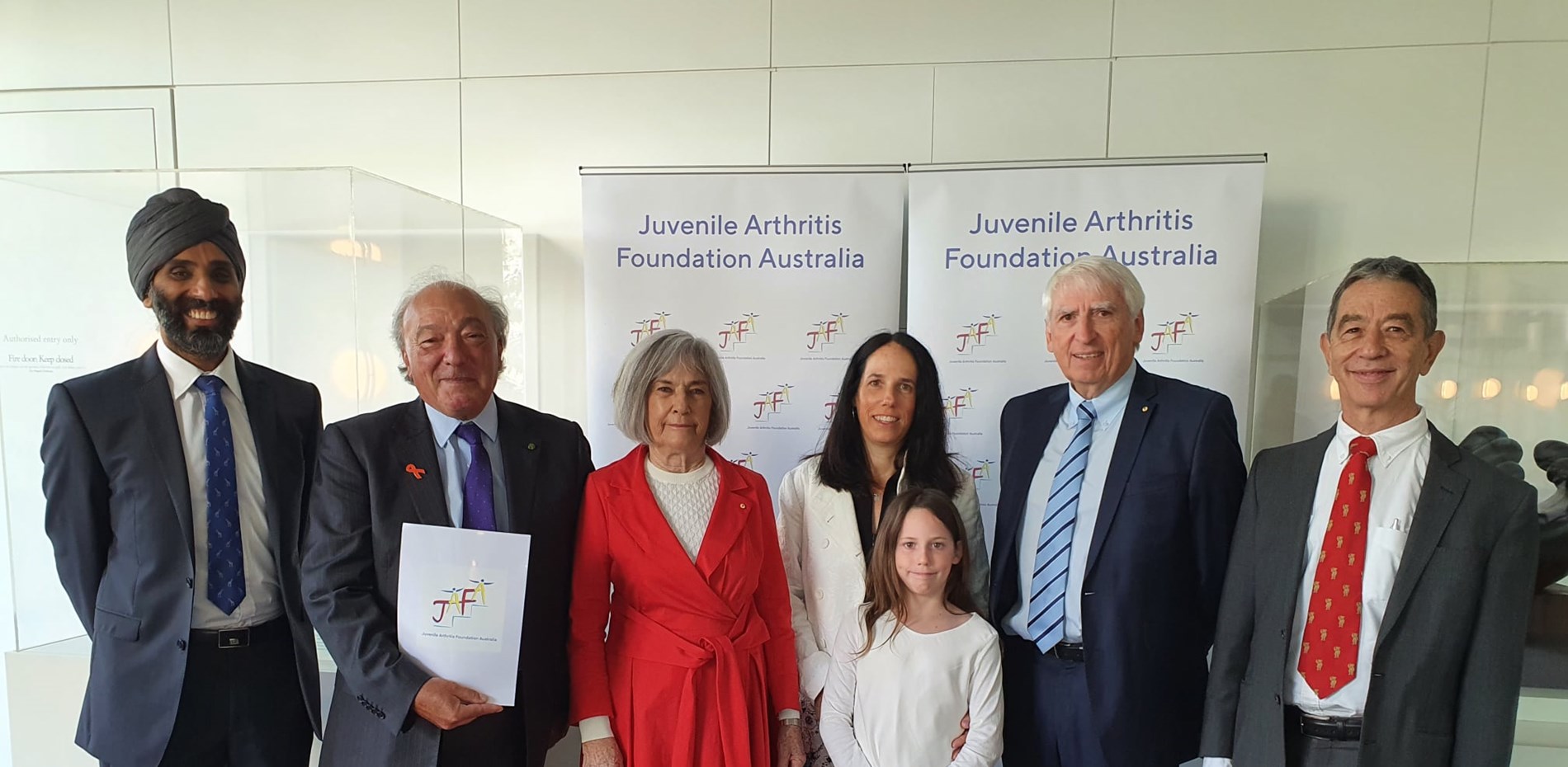I move:
That this House:
(1) notes that juvenile arthritis affects between 6,000-10,000 Australian children and adolescents;
(2) further notes that of the Australian children living with juvenile arthritis:
(a) 80 per cent will experience pain daily;
(b) 20 per cent develop a vision-threatening inflammation of the eyes; and
(c) many experience lengthy delays in obtaining a formal diagnosis;
(3) commends the work of the Juvenile Arthritis Foundation of Australia and their tireless advocacy for young Australians living with juvenile arthritis; and
(4) recommends that the Government provides funding to establish programs aimed at:
(a) raising awareness of this disease; and
(b) developing a national registry and research package to better understand the extent and impact of juvenile arthritis on individuals and the economy.
I came to this place to provide a voice for my community and for the many patients I've cared for over the years. Some of those patients suffer from juvenile arthritis. One organisation that I've been privileged to work with since I've been in parliament and that I support is the Juvenile Arthritis Foundation Australia. I support them alongside the member for Higgins, who co-convenes the Parliamentary Friends of Arthritis with me. Juvenile arthritis is a serious, incurable and debilitating disease that affects up to 10,000 young children and adolescents around the country, and more than double that number of adults are suffering the side effects of the childhood arthritis. The Juvenile Arthritis Foundation Australia is a wonderful organisation founded by professors Ruth and Stephen Colagiuri. It seeks to advocate for these children and families, and it's doing a fantastic job. But we must help them to provide state-of-the-art treatment for children with juvenile arthritis.
There is no proper Australia-wide program to develop paediatric rheumatologists to treat these children, and many children are missing out on care because of delayed diagnosis and the lack of a comprehensive program to provide multidisability treatment for them. Between five and 10 per cent of these children also suffer from what's called uveitis, which is a chronic inflammatory disease of the eye that can lead to blindness. Some of these children can't get to see an ophthalmologist because of the lack of a comprehensive program for their care. Many of these young Australians have really suffered a lot because of their juvenile arthritis. Before the COVID lockdown we had a meeting in this place where we heard the stories of the children and their families, and they were really harrowing. Juvenile arthritis is not uncommon, but the diagnosis is often missed because of a lack of proper training for general practitioners and other health professionals. One in five children with juvenile arthritis will develop uveitis and 80 per cent of children living with juvenile arthritis have daily pain that's often difficult to manage. One in three people who have suffered from juvenile arthritis will enter later life with a severe disability.
There's a shortfall in specialist services around the country, but particularly in the more populous states such as New South Wales. I've been privileged to work with a close friend of mine Dr Jeffrey Chaitow, a paediatric rheumatologist, who has provided wonderful care for children with juvenile arthritis in New South Wales, but he has severely limited resources because we're not training enough people to deal with juvenile arthritis. There's a shortfall in specialist services in things like paediatric physiotherapy and occupational therapy. As I mentioned, there's a shortfall in ophthalmologists who can assess and treat these children quickly. Unfortunately, although it's so common in a complex condition, the children are waiting far too long for a diagnosis. We must have a comprehensive national plan. The effect of juvenile arthritis on families is severe. Children often struggle to get to school because of pain. They often have physical disabilities because of limitations in joint movement and contractions, and the effect of this is really profound. These children battle every day, and their families battle with them.
We must raise awareness, we must provide comprehensive care plans for them and we must train more people in paediatric rheumatology so better treatment can be provided to these kids. We need to address the shortfall in services around the country. We need to improve affordability and accessibility of care and the quality of care that the children are getting. Whilst I am most familiar with the problems in New South Wales, I know that in places like Victoria, Tasmania, South Australia and Western Australia it's very difficult to get comprehensive multidisciplinary treatment for children with multiple joint abnormalities. Some children have other associated problems, such as heart problems. Some children suffer, as I mentioned, from uveitis and visual impairment. Early treatment and early diagnosis to prevent disability are the key to management, and we must do better as a country. I'll be talking about this more next year, because we are about to start a health committee inquiry into better treatment for juvenile arthritis, but we as a country must do better.



